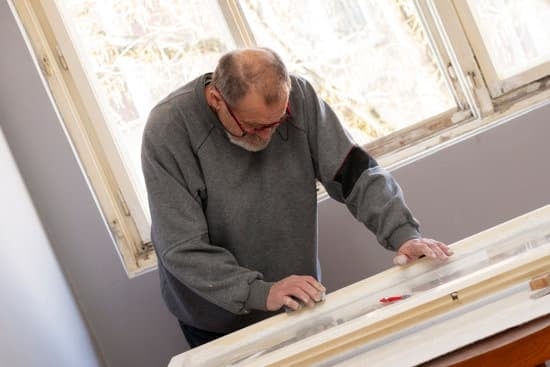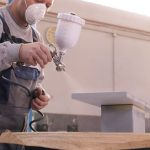What home improvements can I write off on my taxes? Homeowners often wonder about the tax implications of making improvements to their properties. Understanding the ins and outs of tax deductions for home improvements can help you save money and make informed decisions about renovations. In this article, we will delve into the concept of home improvements and tax write-offs to provide clarity on what expenses qualify for deductions.
Homeowners may be pleasantly surprised to learn that certain improvements can be written off on their taxes, potentially saving them money in the long run. It’s essential to have a thorough understanding of the types of home improvements that qualify for tax deductions, as well as the eligibility criteria for claiming these deductions. From energy-efficient upgrades to medical modifications and even home office expenses, there are various specific home improvements that can be written off on taxes.
Additionally, maintaining accurate records and documentation is crucial when it comes to tax write-offs on home improvements. Keeping track of receipts, invoices, and other relevant documents will support your claims and ensure compliance with IRS regulations. Furthermore, it’s important to be aware of any limitations or exceptions that may apply to the tax deductions for home improvements. By gaining insights into these nuances, homeowners can make informed decisions about their renovation projects and maximize their potential tax savings.
Understanding the Tax Deduction
When it comes to tax deductions for home improvements, it’s important to understand the different types of improvements that qualify. The IRS allows for certain home improvements to be eligible for tax deductions, but it’s crucial to be aware of what types of improvements fall under this category.
Energy-Efficient Upgrades
One type of home improvement that may qualify for a tax deduction is energy-efficient upgrades. This can include things like installing solar panels, replacing windows and doors with energy-efficient models, or upgrading HVAC systems to more efficient options. These upgrades not only benefit the environment and reduce energy costs, but they can also provide an opportunity for tax savings.
Medical Modifications
Another category of home improvements that may be eligible for tax deductions is medical modifications. This can include things like installing ramps or lifts for mobility-impaired individuals, widening doorways or hallways for wheelchair accessibility, or making other modifications to accommodate medical needs within the home. It’s important to keep in mind that these modifications must be specifically made for medical purposes in order to qualify for a tax deduction.
Home Office Expenses
For those who use a portion of their home exclusively for business purposes, certain home office expenses may be eligible for tax deductions. This can include improvements such as painting or repairs in the designated home office space, as well as expenses related to maintaining that space. However, it’s crucial to ensure that the home office meets specific criteria set by the IRS in order to qualify for these deductions.
Overall, understanding the different types of home improvements that qualify for tax deductions is key in maximizing potential savings on your taxes. Keeping accurate records and documentation of these improvements is essential when claiming these deductions on your taxes. It’s also recommended to consult with a tax professional to ensure eligibility and maximize potential savings based on your individual circumstances.
Eligibility Criteria
Understanding the Criteria
To claim tax deductions on home improvements, it is important to understand the eligibility criteria set by the Internal Revenue Service (IRS). Generally, home improvements must be considered “capital expenses” that increase the value of your property. This means that routine maintenance and repairs are not eligible for tax deductions, but major improvements that add value or extend the life of your home may qualify.
Use of Funds
It’s essential to note that any funds used for home improvements must be used to improve your primary residence. Second homes, vacation homes, and rental properties may not qualify for the same tax benefits. Additionally, if you receive any form of government incentive or subsidy for making certain home improvements, you may need to adjust your deduction accordingly.
Ownership and Use Requirements
The IRS also has ownership and use requirements when it comes to claiming tax deductions on home improvements. Generally, you must own the property in which the improvement is made, and it must be used as your primary residence. There are certain exceptions for individuals with disabilities or those who need home modifications for medical purposes. It’s crucial to ensure that you meet these requirements before attempting to claim tax deductions on your home improvements.
Specific Home Improvements
When it comes to tax deductions for home improvements, there are specific upgrades and modifications that can qualify homeowners for write-offs. One type of improvement that is often eligible for tax deductions is energy-efficient upgrades. This can include installation of solar panels, energy-efficient windows, doors, insulation, HVAC systems, and more. The government offers these incentives to encourage homeowners to invest in sustainable and eco-friendly solutions.
Another category of home improvements that may be eligible for tax write-offs is medical modifications. These are changes made to a home to accommodate a medical condition or disability. Examples include installing ramps, widening doorways, adding handrails in bathrooms and showers, and modifying kitchen areas for wheelchair accessibility. It’s important to note that these modifications must be specifically prescribed by a medical professional to qualify for tax deductions.
Additionally, home office expenses can also be written off on taxes under certain circumstances. If you use a dedicated space in your home for business purposes, you may be able to deduct expenses related to that area. This can include a portion of your mortgage or rent, utilities, internet fees, phone bills, office supplies, and more. However, it’s crucial to comply with the IRS guidelines regarding eligibility for this deduction.
It’s important for homeowners considering tax deductions for their home improvements to keep detailed records and documentation of all expenses related to the qualifying upgrades or modifications. This includes invoices from contractors or service providers as well as receipts for materials used in the project. Without proper documentation, it may be challenging to prove the eligibility of these expenses for tax deductions during an audit by the IRS.
| Home Improvement Category | Examples |
|---|---|
| Energy-Efficient Upgrades | Solar panels, energy-efficient windows and doors |
| Medical Modifications | Ramps installation, doorway widening |
| Home Office Expenses | Mortgage/rent portion used for office space utilities costs |
Documentation
When it comes to writing off home improvements on your taxes, there are specific types of upgrades and modifications that qualify for tax deductions. One popular category is energy-efficient upgrades, such as installing solar panels, energy-efficient windows, and HVAC systems. These improvements can not only save you money on utility bills but also make you eligible for valuable tax credits.
Another type of home improvement that can be written off on taxes is medical modifications. If you need to make changes to your home to accommodate a medical condition or disability, the costs of these modifications may be tax-deductible. This can include adding wheelchair ramps, modifying bathrooms for accessibility, or installing lifts or other assistive devices.
Additionally, if you use a portion of your home regularly and exclusively for business purposes, you may be able to deduct related expenses as a home office. This could include a percentage of your mortgage interest, property taxes, utilities, and other maintenance costs. However, it’s important to keep detailed records and documentation to support these deductions in case of an IRS audit.
Limitations and Exceptions
When it comes to claiming tax deductions for home improvements, it’s important to understand that there are limitations and exceptions that may apply. While certain types of home improvements may be eligible for tax write-offs, not all expenses will qualify for this benefit. It’s essential to be aware of these limitations and exceptions in order to make informed decisions about which home improvement projects to pursue.
Some key limitations and exceptions to be mindful of when considering tax deductions for home improvements include:
- Personal Use: Home improvements that are solely for personal use and enjoyment typically do not qualify for tax write-offs. For example, a kitchen renovation or bathroom remodel that is purely for aesthetic purposes may not be eligible for tax deductions.
- Rental Property: If the home improvements are made to a rental property, they may be considered as business expenses rather than personal deductions. This distinction can impact the eligibility for tax deductions.
- Home Value Increase: If the home improvement project significantly increases the value of the property, it may not qualify for immediate tax write-offs. Instead, the expenses may need to be depreciated over time.
It’s crucial to keep these limitations and exceptions in mind when planning home improvement projects with the intention of claiming tax deductions. Consulting with a qualified tax professional can provide personalized guidance on navigating these factors and maximizing deductions within the parameters of the law. Understanding these limitations will help homeowners make informed decisions about which home improvements are most financially advantageous in terms of potential tax benefits.
Tips for Maximizing Deductions
When it comes to maximizing tax deductions for home improvements, strategic planning and timing are crucial. Here are some tips to help you make the most of your potential tax write-offs:
- Plan your home improvements strategically: If you’re considering multiple home improvement projects, it may be beneficial to plan them in a way that maximizes your tax deductions. For example, if you’re thinking of making energy-efficient upgrades and medical modifications, consider timing those projects in a way that allows you to benefit from the tax deductions in separate tax years.
- Take advantage of available tax credits and incentives: When planning home improvements, research any available tax credits or incentives for specific types of upgrades. For example, there are federal income tax credits for energy-efficiency improvements such as solar panels or geothermal heat pumps. Taking advantage of these programs can maximize your potential tax deductions.
- Consult with a tax professional: To ensure that you are optimizing your tax deductions for home improvements, it’s essential to seek advice from a qualified tax professional. They can provide personalized guidance based on your specific financial situation and home improvement plans.
By strategically planning your home improvements, taking advantage of available tax incentives, and seeking professional advice, you can maximize your potential tax deductions and make the most of your investment in improving your home. Remember to keep accurate records and documentation to support your claims when filing taxes.
Conclusion
In conclusion, understanding the tax deductions for home improvements can be a valuable tool for homeowners looking to save money on their taxes. By taking advantage of eligible home improvements, such as energy-efficient upgrades, medical modifications, and home office expenses, individuals can potentially reduce their tax liability and increase their potential refund. However, it is important to thoroughly understand the eligibility criteria and keep accurate documentation to support any claims for tax deductions.
When considering home improvement write-offs on taxes, it is essential to consult with a tax professional for personalized advice. Tax laws and regulations can be complex and subject to change, so seeking expert guidance can ensure that individuals make the most of available deductions while avoiding any potential pitfalls. A tax professional can provide tailored advice based on an individual’s specific circumstances and help maximize their opportunities for tax savings through home improvements.
In summary, while the concept of writing off home improvements on taxes may seem daunting, it is within reach for many homeowners who undertake qualifying projects. By staying informed about the types of eligible improvements, maintaining thorough documentation, and seeking professional advice when necessary, individuals can confidently navigate the process of claiming tax deductions on their home improvements.
Consulting with a tax professional is a smart investment in ensuring that one’s financial interests are protected and optimized when it comes to maximizing deductions for home improvements on taxes.
Frequently Asked Questions
Are Any Home Improvements Tax-Deductible?
Some home improvements may be tax-deductible, but it depends on the specific circumstances. Generally, improvements that increase the value or prolong the life of your home may qualify for tax deductions. However, routine repairs and maintenance are typically not eligible for tax deductions.
What Can a Homeowner Write Off on Taxes?
Homeowners can potentially write off mortgage interest, property taxes, and certain energy-efficient home improvements on their taxes. Additionally, if you work from a dedicated home office, you may be able to deduct a portion of your home expenses related to that space.
Can You Write Off New Flooring on Your Taxes?
It is possible to write off new flooring on your taxes under certain conditions. If the new flooring is installed for medical reasons (such as allergies) or because of a disability, it could potentially qualify as a medical expense deduction.
Similarly, if the flooring installation is considered an improvement that adds value to your home, it may also be eligible for a tax deduction. It’s important to consult with a tax professional to determine the specifics of any potential deductions related to new flooring.

I’m thrilled to have you here as a part of the Remodeling Top community. This is where my journey as an architect and remodeling enthusiast intersects with your passion for transforming houses into dream homes.





